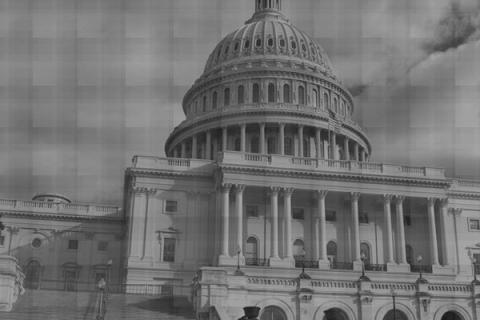Last week, the United States Supreme Court rendered a historic ruling against the Federal Election Commission (FEC) and all laws that seek to limit big corporate money in American politics. The Court affirmed the position argued by Citizens United, a prominent conservative advocacy and lobbying group in Washington DC. The group challenged the legality of an FEC regulation which restricted the ability of corporations and unions to fund political advertisements. This decision, which has been coined by media outlets around the country as a major step forward for conservatives, is in fact exactly the opposite.
CU was challenging a ruling decided in 2008, in which the FEC ruled against allowing the group to air an anti- Hillary Clinton film, known as “Hillary: The Movie.” The group had planned to air the film in the District of Columbia preceding the Democratic primaries. However, because the FEC found that CU received an abundance of corporate donations and actively supported the defeat of Clinton within a 60 day window of an upcoming election, it was determined that they were in direct violation of the McCain-Feingold Act. CU argued that the courts should not “distinguish between corporations and individuals” and thus, their First Amendment Right to free speech was violated. In a statement released by the deciding Majority, Supreme Justice Kennedy explains the courts’ decision:
Distinguishing wealthy individuals from corporations based on the latter's special advantages of e.g., limited liability, does not suffice to allow laws prohibiting speech. It is irrelevant for First Amendment purposes that corporate funds may "have little or no correlation to the public's support for the corporation's political ideas." Austin, supra, at 660. All speakers, including individuals and the media, use money amassed from the economic marketplace to fund their speech, and the First Amendment protects the resulting speech.
The Court found in favor of Citizens United by 5 to 4 majority, and has hereby dramatically altered the future of electoral politics. How does ruling like this affect the average American voter? Loyola Law School Professor Rick Hasen put it nicely on Ashby Jones’ Wall Street Journal Blog. He explained:
Yesterday, if you wanted to influence the outcome of an election, you had to set up a PAC, contributions in which were limited to $5,000 per individual. But today, things are very different. Google or IBM, for instance, can spend an unlimited amount of money in support of a candidate.
This decision is undoubtedly one of the most important First Amendment rulings in recent history. Though the Court certainly believed it was making a decision that was upholding individuals’ essential right to free speech, upon further examination, this appears to be furthest from the truth. First, it is unclear how allowing corporations and unions the ability to pour unlimited amounts of money into campaigns makes the individual citizen any freer. In fact, the opposite now seems true. Second, with Republicans and Democrats indebted to the largest corporations for their political survival, it is difficult to see how politicians will be interested in the speech of average citizens whatsoever. Last, and most importantly, one must question how free speech can be advanced when the likely effect of such a ruling is the further entrenchment of partisan politics and the marginalization of the independent-minded voter.
Conservatives are deeming this a victory for free speech, while liberals are saying this is a blatant attack on a free and fair democratic election process. Democrats are fearful because of the amount of money and power conservatives hold in the corporate world, while Republicans are elated that their chances of taking back power have dramatically increased. Conservatives' likelihood of increasing their numbers in Congress has become much stronger, but their gain, has come at a major price. This decision goes against the principles of conservatism and the foundational ideal of preserving individual rights above all else.
Our Founding Fathers explicitly protected the rights of the individual in the Constitution. It wasn’t because they hated corporations or big business, but rather they feared corporations could end up driving public policy. With this decision, the court is essentially stating that when it comes to free speech, there is no distinguishable difference between a wealthy individual and corporation. So, because there is no difference between the two, the court has no legal right to decide what corporations or unions say, or how they spend their money saying it.
But what about the individual? If we extend Constitutional principles to allow unions and corporations to spend limitlessly on campaigns, why would we limit individuals to contributions of $5,000 to political candidates, when individuals are explicitly protected by the Constitution? Is an individual that can donate $5 million dollars to a candidate more dangerous to our political process than a corporation that can now spend limitless amounts of money on their own parallel political campaign? At least when the candidate spends the money, they are accountable for the integrity of the information they spread.
This decision could not have come at a worse time for this country. The American public was already lost, frustrated, and disillusioned with the way Washington was conducting business. And now the people’s voice has been reduced to nothing but a whisper. "Conservatives" can bask in their glory, but this is actually a very “liberal" interpretation of the Constitution, which discards the more foundational and conservative argument, to protect the individual over all else.
